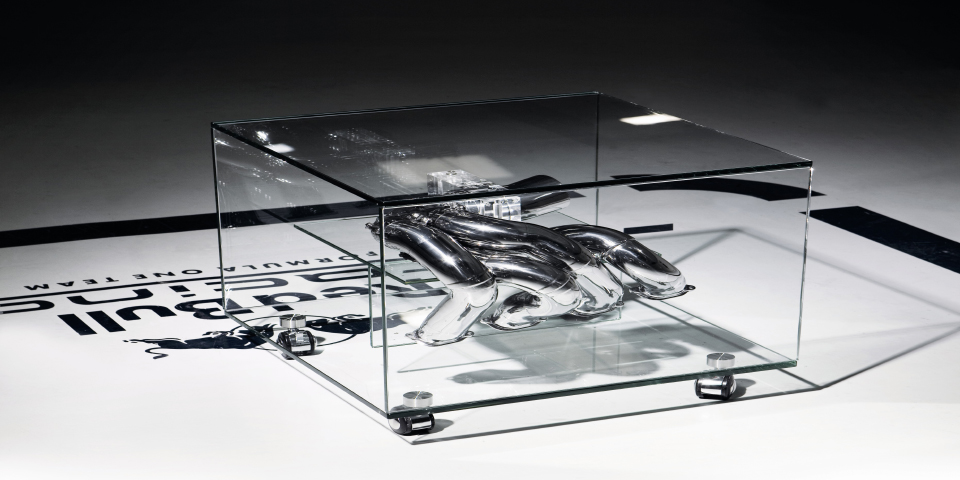Tea, Tramadol & Today's Great Depression
By Adrian Ash
“Even at home there is generally a cup of tea going – a ‘nice cup of tea’ – and Father, who has been out of work since 1929, is temporarily happy because he has a sure tip for the Cesarewitch…”
– George Orwell, The Road to Wigan Pier (London, 1936)
SEVENTY YEARS AGO last month, just as the Battle of Britain began, tea rationing struck the seat of empire.
Really, Herr Hitler had gone too far this time!
Caffeine mixed with sugar, hot water and milk had fuelled the Industrial Revolution just as surely as did cheap coal and expensive sweat. From back-to-back slum to baronial pile – and starting long before London proclaimed Victoria the Empress of India in 1876 – the daily cares of imperial power had been eased every few hours by a “nice cup of tea”. According to one 1749 record, a tradesman’s family spent more on tea and sugar each week than they did on the basic staple of bread.
Yes, by July 1940, Britain’s economic and military might had already slipped. But it took a real villain – an odd little vegan with a Chaplin moustache – to stem Britain’s massive imports of leaf-tips, blockading her merchants both navy and banker.
“The worst thing to be brave about is the tea ration,” confessed one air-raid warden in a letter written that September, as the Messerschmitt battled the Hurricane each day above London and Kent.
“Everything else can be managed.”
Little wonder that two ounces per week per person caused so much pain. For as all junkies know, there’s no fun in repeatedly counting the last cigarette in the pack. Especially not when your taste for even the mildest of hits has been given free rein in advance. Which is just the habit Britain had picked up during its Great Depression.
By 1932, Britain’s per capita consumption of tea had almost doubled compared with 1900 to nearly three ounces per week. Come 1936, reckoned the International Tea Committee, Britain was drinking 53.5% of world output – up from 48.4% eight years earlier, and no longer sipping but gulping the stuff – even as India’s plantations colluded to crimp production in a bid to raise prices.
Why this binge on tea’s little pick-me-up? Kicking through the dust in the archives, it seems there was little better to do amidst the gloom of the Thirties’ depression. Regular doses of freshly brewed tea offered a simple way of passing the time – and the stronger, the better – as unemployment peaked at 1-in-5 of the insured British workforce.
“We are all floating somewhere on a full tide of tea,” wrote J.B.Priestley in his English Journey, touring from Southampton to Durham and drinking tea at most points between in autumn 1933 – “not the clear, almost sparkling infusion, but a murky stew, made with water that either never quite came to the boil or had been boiled out of all freshness and fun, in a teapot not allowed to recover from its last dark brew.
“God only knows where we are bound, but the tannin inside us does not encourage us to feel too hopeful.”
1930s’ British writing is crock-full, in fact, with teapots and saucers. Even high modernist (and Irishman) Samuel Beckett found a way for his 1938 hero, the eponymous (and workshy) autist of Murphy, to swindle 1.83 cups of tea out of every one bought from his favorite chain of caterers, somewhere between Hyde Park and Holborn in London. George Orwell’s journal of Depression England, meantime – detailed in The Road to Wigan Pier – is simply drenched in the stuff, with over-brewed tea buoying the misery of each four-to-a-room doss house he visits.
“The people are in effect living a reduced version of their former lives,” notes Orwell of the un-working class and lower-middling sorts, amongst whom he lived for perhaps two or three months in early 1936. “But they don’t necessarily lower their standards by cutting out luxuries and concentrating on necessities; more often it is the other way about – the more natural way, if you come to think of it.
“Hence the fact,” says the Eton-educated Socialist, “that in a decade of unparalleled depression, the consumption of all cheap luxuries has increased.”
What cheap luxuries might now draw the depression dollar in the decade before us? Back in the ’30s, say Orwell and Priestley, it was nights at the cinema, ill-fitting suits, fish-and-chip suppers, make-up, a bet on the horses, and the odd jaunt on a motor coach – “how the ancient Persian monarchs would have travelled, had they known the trick of it.”
More telling – not least against fourpence a pint of weak beer – “aspirins [were] seven a penny,” reports Orwell. Whereas, in the early 1980s, the return of mass unemployment in northern England was met by a flood of cheap heroin as the Soviets failed to take and hold Afghanistan. America’s urban poor got cocaine and baking soda. Whereas today in Palestine, where youth unemployment runs to 50% or more in Gaza, the cheap off-patent painkiller Tramadol has become a common way “to forget our daily worries and problems…our hard psychological situation,” as one 25-year old told the Associated Press this spring.
“There was no work, plus I had to take care of 11 people, including my wife,” said a 45-year old user to The Independent. “All people could do was sit around in the street and drink tea or coffee.”
No, joblessness doesn’t mean good people will resort to drugs, theft, prostitution or tea. And naturally, none of these depressive cheap thrills are inevitable in either the US or Britain – not according to those seers who failed to foresee today’s financial crisis.
“Quantitative easing is a program that should be vastly expanded,” says one. “We don’t need one of expansionary monetary and fiscal and banking policy; we need all of them,” says another. “While the Fed sits there in its self-inflicted paralysis, millions of Americans are losing their jobs, their homes and their hopes for the future,” says a third.
Their prescription? A fresh flood of over-brewed painkillers, stamped at the printing shop (or its “electronic equivalent” as Ben Bernanke put it in 2002) and dispensed wherever the quacks diagnose a surfeit of savings or too little debt. For all we know here at BullionVault, it might well help ease today’s pain. But as 2007-2009 proved, palliation with cheap money will only make withdrawal tougher when the next blockade strikes. Which it will, tax-payer owned needle exchanges or not.
Adrian Ash
Gold price chart, no delay | Buy gold online at live prices
Formerly City correspondent for The Daily Reckoning in London and head of editorial at the UK’s leading financial advisory for private investors, Adrian Ash is the editor of Gold News and head of research at BullionVault – winner of the Queen’s Award for Enterprise Innovation, 2009 – where you can buy gold today vaulted in Zurich on $3 spreads and 0.8% dealing fees.
(c) BullionVault 2010
Please Note: This article is to inform your thinking, not lead it. Only you can decide the best place for your money, and any decision you make will put your money at risk. Information or data included here may have already been overtaken by events – and must be verified elsewhere – should you choose to act on it.













